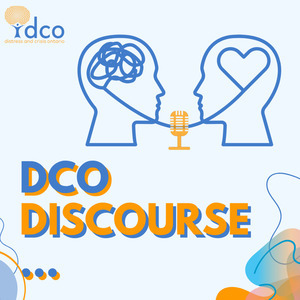Episode 21
Concurrent Disorders (Part 1)
May 10th, 2019
27 mins 10 secs
Season 1
Your Hosts
Tags
About this Episode
There are many reasons to become aware of the impact of Concurrent Disorders. Many do not understand that substance use can trigger or worsen mental health problems; and in some cases, may mask an undiagnosed mental illness that already exists. Conversely, mental health issues such as depression, anxiety or psychotic symptoms can lead one to use substances, which can progress into a development of concurrent substance use disorder. Seeking assistance for these disorders can be very frustrating. The fact is, it is not unusual for community treatment programs to deal with substance use and mental health disorders separately in a fragmented way, or to deal with one issue but not the other. Although the treatment system is improving, there are still centres that do not deal with these disorders concurrently (i.e. in a coordinated and integrated fashion which is best practice). The results are ineffective or sub-standard care for these individuals that will not truly meet their needs. Andrea Tsanos, Advanced Practice Clinician for the Toronto Centre for Addiction and Mental Health is featured in the vignette, Concurrent Disorders (Part 1). Andrea delivers an insightful introductory session defining Concurrent Disorders and describes what those living with Concurrent Disorders encounter in their day-to-day lives. Questions for Further Consideration: What was your understanding about Concurrent Disorders before viewing the vignette? Does knowing reasons why one would use substances that contribute to the disorder change your understanding or attitude toward those who have it? Each viewer will have a different experience but it is valuable to review some of the reasons for someone to use substances: for self-medication to relieve the symptoms of mental health issues to relieve feelings of isolation or despair to gain acceptance in a peer group and to gain a general sense of well-being Consider the stigma often associated with someone who has an addiction problem or has a mental health diagnosis. What are some of the issues that people with concurrent disorders face? Prejudice and discrimination in personal, social, and medical interactions Secrecy about symptoms and how they are dealing with them Avoidance in seeking help Low self esteem Depression – suicidal ideation Homelessness/housing problems Legal problems Rejection from peers or family Poor quality of life When an individual with a Concurrent Disorder seeks information about where to get help in your community – do you know what resources are available? You may have to discuss this with your training coordinator because each community is different. Some of you may have access to the Centre for Addiction and Mental Health (CAMH) while smaller communities may not. You may want to take a look at what is offered in mental health supports as well as what is available in the area of addictions. Remember, a person who has a Concurrent Disorders will not necessarily identify with this label or know that they have them.
